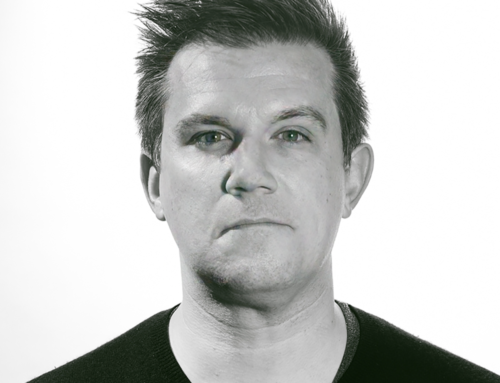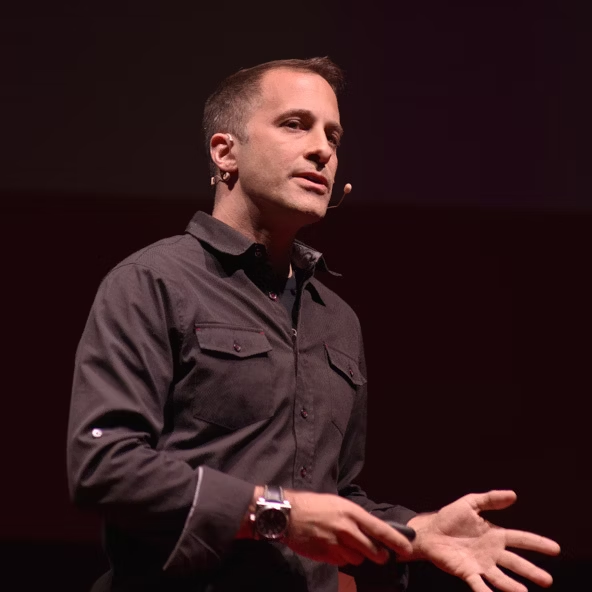Contributor: Ali Lewellyn
Futurist and self-proclaimed “senior maverick” Kevin Kelly has  graduated to that envious point in life where he can explore ideas and their implications, focusing on telling their stories. The gift of such a season is the ability to integrate enviable amounts of content, and articulate to an ever-growing readership what he can see from that bird’s eye view.
graduated to that envious point in life where he can explore ideas and their implications, focusing on telling their stories. The gift of such a season is the ability to integrate enviable amounts of content, and articulate to an ever-growing readership what he can see from that bird’s eye view.
Ten years ago, he poured that vision into a book called What Technology Wants, building on the familiar notion of technology as an extension of the human body. Uniquely, he identified a new force he called the technium, consisting of everything that the human mind has ever produced.
Kelly points out that many people call this idea – the sum total of human invention and achievement – culture. That conception is too small, though, he argues; it misses the self-propelling element of arts creating tools creating new arts and new tools – traditionally referred to as technology. We often use that term, however, to refer to one specific technology or tool, rather than the whole body of them, bringing us back to technium.
This opened up a number of key considerations: human minds are alive; is what is produced by those minds alive? How was it different than nature? Could it be disembodied? The idea that Kelly kept returning to was the autonomy displayed by this larger body of technology. It’s not simply what “we have made,” dependent on us to animate it. The technium is “a very complex organism that often follows its own urges… a vital spirit that throws us forward or pushes against us. Not a thing but a verb.[1].” […sounds a little like the singularity approaching.]
This concept of the technium is core to understanding the fundamental connection between technology and the world around us. This perspective on technology has impact on us because we see ourselves in it, and the shift to a force allows a symbiotic relationship that will continue to take us places we couldn’t previously imagine. The technium has become a co-author in the story, rather than an element that we are writing (and controlling); that makes all the difference.
Sounds very much like the world we now find ourselves in, doesn’t it?
Ideas never stand alone; they fly in flocks, he explains, and to hold one is to hold cloud of them. Many inventions are disjointed ideas connected to each other, and the technium is that set of connections themselves. Kelly explains that “technology amplifies the mind’s urge toward the unity of all thought, it accelerates the connections among all people, and it will populate the world with all conceivable ways of comprehending the infinite.[2]”
Not only do the ideas not stand alone – they are perpetual. One of the most significant ideas that Kelly proposes is that tools (technologies) never die. “Technologies are idea based, and culture is their memory.”[3] The gravity of those past ideas drives the momentum of the future, and they are inherently intertwined with culture, shaping how we respond. Technology drove us from primate communication to language, from oral storying to printing, from book knowledge to scientific method. That incredible level of complexity is what gives the technium autonomy. As an autonomous system, it displays capacity for self-repair, self-defense, self-management and self-improvement. The technium looks past the application of individual tools to the extended body of how they work together. It notes that when tools originally come out, they are solely utilitarian. As they evolve, they become more structured, more mindful, more beautiful.
No one person can become all that is humanly possible; no one technology can capture all that technology promises. It will take all life and all minds and all technology to begin to see reality. It will take the whole technium, and that includes us, to discover the tools that are needed to surprise the world. Along the way we generate more options, more opportunities, more connection, more diversity, more unity, more thought, more beauty, and more problems. Those add up to more good, an infinite game worth playing. That’s what technology wants.[4]
Isn’t this what we all want – more choices? Not “more technology” –there’s no benefit just in more tools. The goal is having “the largest pool of choices possible so that I can select a minimal set of highly-evolved tools that will optimize my gifts.”[5] That oh-so-human element of autonomy, agency and self-actualization. Evolution, in Kelly’s view, means “more choicefulness,” functioning like an algorithm that magnifies what’s deepest and truest in us. Technology wants to call us higher – and we call it higher; ideally an ever-evolving loop.
The technium gives a context to the progress theories (of change), a taxonomy to the idea theories, a sentience to the technology theories. It doesn’t set nature against man, or against God; instead, it allows nature and man to hold up a mirror to each other in a non-reductionist way that allows room for spirituality. Kelly is creating a truly integral theory[6] of life that doesn’t fear technology or its power, but sees it as much a spiritual force as a human one. “There are simply more things in heaven and earth than are dreamt of in any of these partial philosophies—and the integral approach essentially tries to get all of heaven and all of earth onto the table, without ever confusing a meadow for a cloud, a mountain for a star, or an ocean for a galaxy.”[7]
That’s a worldview about technology that I want to hold on to as a futurist.
[1] Kelly, K. (2011). What technology wants. New York: Penguin Books
[2] Kelly, K. (2011). What technology wants. New York: Penguin Books.
[3] Kelly, K. (2011). What technology wants. New York: Penguin Books.
[4] Kelly, K. (2011). What technology wants. New York: Penguin Books.
[5] https://bit.ly/33Na9rR; accessed 7 October 2020.
[6] To read more about Kelly’s spiritual reflections with Ken Wilber, see https://kk.org/kevinkelly/technology-as-a-spiritual-forc
[7] https://integrallife.com/technology-evolution-and-god/ ; accessed 11 October 2020.





